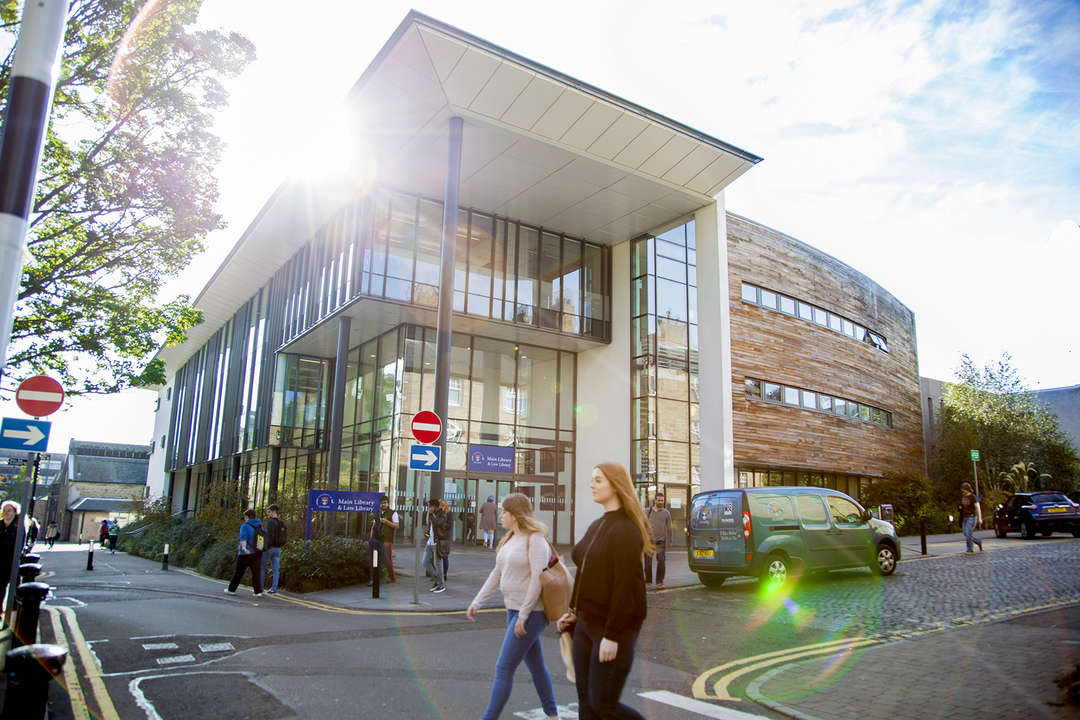The theme for International Open Access Week 2024 is “Community over Commercialisation”. As part of the Library’s OA Week activities, we asked our research community to tell us about their experience of Open Access. One of the most compelling responses came from Mahtab and Fatemeh, two postgraduate researchers from Iran currently studying in Dundee.
In their blog below, they tell us about studying under political and economic barriers in their home country, and how they rely on other researchers making their work Open Access to keep up-to-date with the latest developments in their fields.
Their perspective is a reminder that the research community is a global one but the flow of information that can be taken for granted is not as seamless in some parts of the world.
As two Iranian researchers, Mahtab and Fatemeh, our academic journeys have been shaped by the unique challenges of conducting research in a context where access to information is limited. We faced significant barriers in accessing essential research materials due to a combination of content restrictions and international sanctions. In this blog, we explore how open access to research played a pivotal role in overcoming those barriers and empowered us to pursue our academic aspirations despite the constraints in our home country.
In Iran, certain topics, especially in social sciences, art, and humanities, can be subject to additional scrutiny. Mahtab’s work on gender stereotypes in Middle Eastern painting, for example, has involved navigating limited availability of certain online resources. As an artist and researcher pursuing a master’s degree, she often found it challenging to access certain content that was essential to her field, such as documentaries or articles hosted on free platforms like YouTube or the BBC. This can make it more difficult for Iranian scholars to engage in global conversations on specific topics.
Fatemeh also encountered similar roadblocks when developing her PhD proposal as a returning researcher. She needed access to current literature to build a foundation for her research but found herself restricted by paywalls and limited subscriptions to the most relevant journals. Many of the journals required institutional subscriptions that were simply not accessible to her. This was particularly frustrating, as the lack of access made it challenging to engage with the latest developments in her field.
Iranian researchers face unique challenges due to political sanctions and economic barriers. For us, the cost of accessing international journals or purchasing books online was prohibitive due to the high exchange rate and the unreliable mechanisms for the payment of fees. On the other hand, international sanctions have restricted the ability of Iranian universities to subscribe to major journal databases. There are also cases where international publishers limit access to researchers in sanctioned countries. This meant hitting constant roadblocks in accessing the knowledge we needed to further our research.
Iranian academics and researchers are striving to overcome these challenges by seeking collaborations with their international colleagues. We have had positive experiences reaching out to international scholars in our field for further information on their published works or publications that were not accessible to us. We received positive responses and found the international community to be very supportive. These correspondences not only provided us with valuable resources but also enabled us to build a network of scholars who have similar research interests.
However, these collaborations come with their own set of difficulties, including limitations on international partnerships, conferences, and academic forums. These limitations hinder the exchange of ideas and feedback from diverse perspectives, which are crucial for academic growth.
The other pathway to overcoming these barriers is pursuing higher education or career progression abroad, the path we both have chosen.
Open access to research has provided each of us with solutions unique to our circumstances. By accessing international studies, Mahtab has been able to stay informed about the latest discussions in feminist art and gender studies. This was the case for her during her master’s degree as well as developing her PhD proposal on gendered aesthetics in the Middle East. For Fatemeh, open access was equally transformative. As a returning researcher with limited access to journal subscriptions and academic resources, open access resources allowed her to access up-to-date studies that informed her research, filling the gaps while developing her PhD proposal in urban planning.
Our experiences highlight how open access can empower researchers from underrepresented regions, allowing them to contribute to global academic discussions. By removing financial barriers and censorship, open access ensures that research is accessible to a more diverse range of voices, regardless of their location or circumstances. For Iranian scholars, who face considerable barriers to accessing traditional academic resources, open access is not just a convenience; it is a necessity.
Mahtab and Fatemeh
University of Dundee
If you are a University of Dundee staff member or research postgraduate student, make your research Open Access through your profile on the Discovery Research Portal. Find out how on the Open Research SharePoint site. Contact discovery@dundee.ac.uk for more information.
Launched during International Open Access Week 2024, the Open Research Blog Series is a collection of testimonies, views, and opinions on Open Research from the University of Dundee research community. These have been collected by the Library and published to highlight the variety of Open Research practices employed by researchers across the University.


Leave a Reply